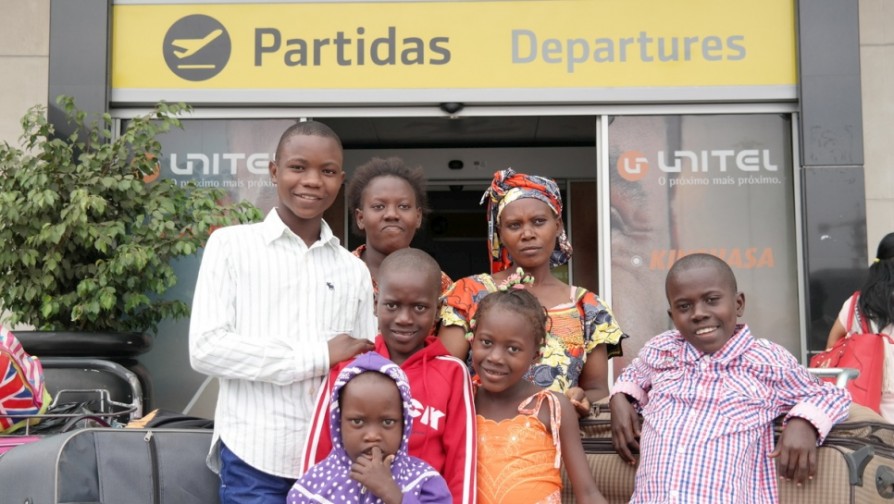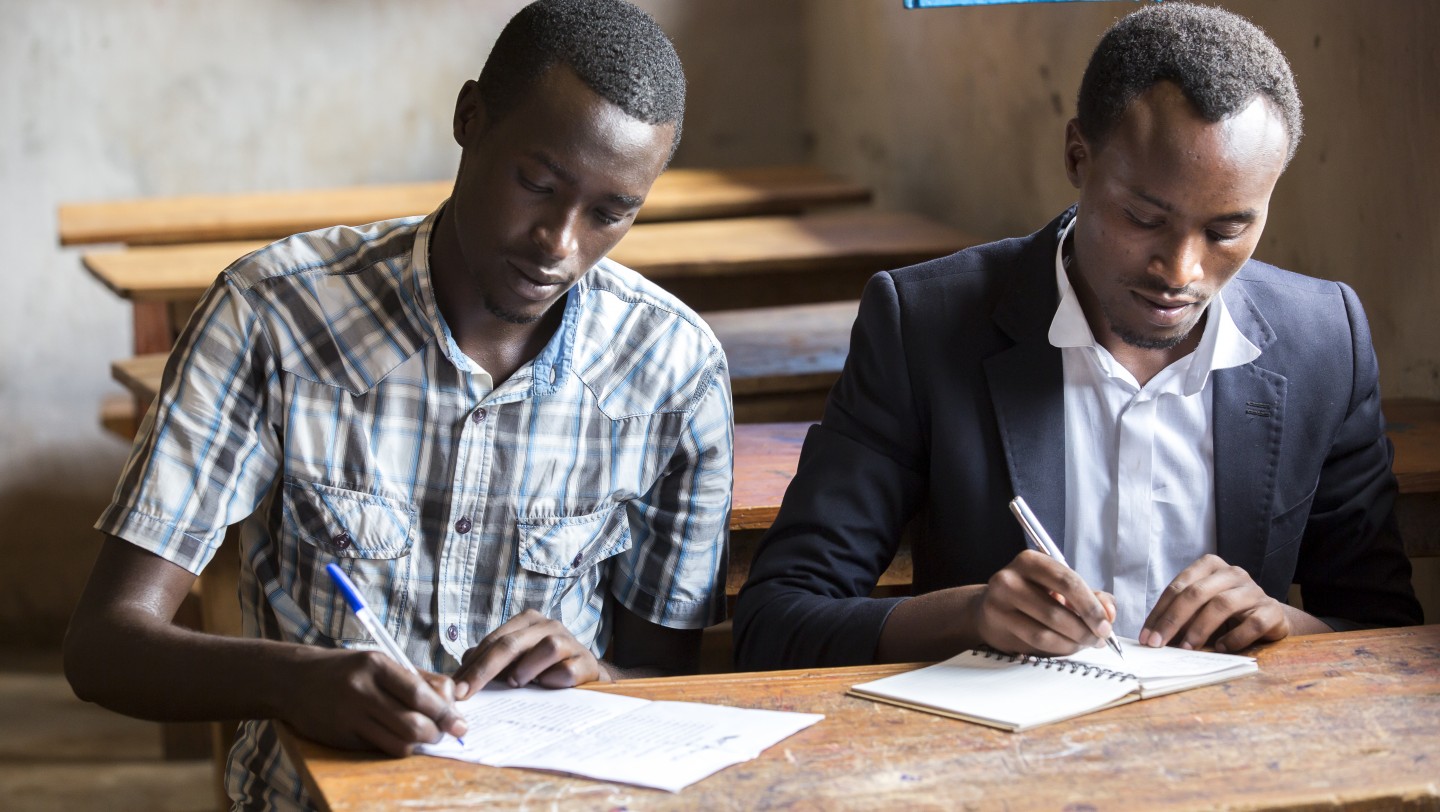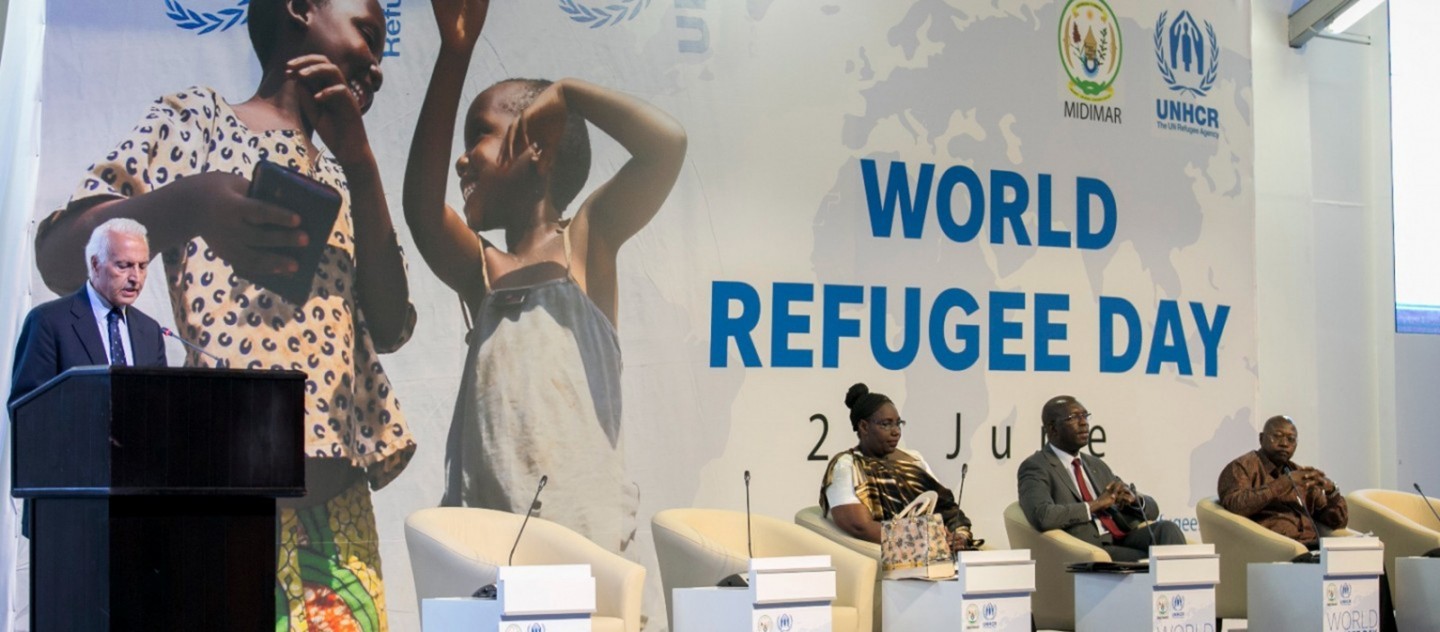Rwandan refugees head home after a generation in Angola
After fleeing the horrors of the 1994 genocide, increasing numbers are ready to return to Rwanda, although many still worry about how they will cope after decades away.
By: Martim Empis Gray Pereira and Casilda Gil de Santivanes Finat | 22 August 2016 | Français
LUANDA, Angola – Musabyenamariya Fratenata’s husband died five years ago, leaving her struggling to find the money to raise their six children alone in Angola.
Originally from Rwanda, she fled during the horrors of the 1994 genocide and has been a refugee ever since. Now, she is finally going home.
“It has been a long time since I left Rwanda and I cannot imagine how everything is now, but I am very excited to go back and finally see my family again,” Fratenata said as she packed and prepared to leave Angola, her home for 18 years and the place where all her children were born.
“My younger siblings were very little and I cannot remember them very well, and neither can they remember me. I want us to get to know each other.”
Fratenata and her family are among 340 Rwandans living in Angola whose legal status as refugees is expected to come to an end in September. The change is encouraging many to consider returning home, and UNHCR, the UN Refugee Agency, is ready to help all of those who want to return to Rwanda as part of its global drive to find ‘durable solutions’ for long-term refugees.
“For years, the Rwandese community in Angola was sceptical about returning to Rwanda.”
“For years, the Rwandese community in Angola was sceptical about returning to Rwanda,” says Manuel Abrigada, UNHCR’s Senior Protection Associate in Luanda, the Angolan capital. Reasons included historical concerns about insecurity, and more recent worries about integrating back into their communities after staying so long away.
“However, with the feedback from the few families that are going back, they are starting to change their minds,” Abrigada continues. “Repatriation is becoming more appealing for the Rwandese refugees and more are considering going back home.”
An estimated 800,000 Rwandans, mostly Tutsis and moderate Hutus, were killed by their fellow Hutu countrymen over 100 days in 1994. It was sparked by the shooting-down of then-President Juvenal Habyarimana’s plane on April 6, 1994.
Fratenata, 38, said she was unsure what the future would hold once she returned to Rwanda, which she fled aged 16 when horrific ethnic violence engulfed the country.
She speaks to her parents and relatives back at home on the telephone when she can afford the call charges, and says they are excited to welcome her back. But she was keen that UNHCR would help her family settle down once they arrived back in rural Rwanda.
“My family is waiting for me and they will help us,” she says. “I will work with my relatives in agriculture and my parents, at the beginning, will assist me sending my children to school.”
Seventeen-year-old Lambert, Fratenata’s eldest son, was forced to drop out of school after his father died because his mother could no longer afford the school fees. He is excited about restarting his education once he is in Rwanda.
“I will miss very much my Angolan friends and the church, but I hope that I can finish my studies in Rwanda and enrol in university to study accounting,” he says.

Musabyenamariya Fratenata and her children at the airport in Angola prior to their departure for Rwanda. © UNHCR/Martim Gray Pereira
“I had never been to Kigali before, but we used to see it on TV and it is totally different from what I thought.”
For his younger siblings, there is only the excitement of travelling to the place they are told is their home, even though they have never been there. Nizeyimana and Sebastiao, two of Lambert’s brothers, laugh and say together: “We are Rwandans.”
Fratenata’s family are the not the first Rwandan refugees to return home recently from Angola. Several others have already made the move. Among them are two brothers, Uwizeyimana Donatien and Ndasyisabye Donath, who are now home after 22 years away.
“Arriving here in Rwanda, everything was quite new,” said Uwizeyimana, 33, who worked at an internet café in Luanda. “I had never been to Kigali before, but we used to see it on TV and it is totally different from what I thought.”
His brother said he heard many rumours about the dangers of returning home before he left Angola.
“People used to say that there is no security and liberty in Rwanda,” he said. “They told us that if we went back, we will be imprisoned; but I can see that Rwanda has transformed. It was just gossip.”
Eugene Sibomana contributed reporting from Kigali, Rwanda



